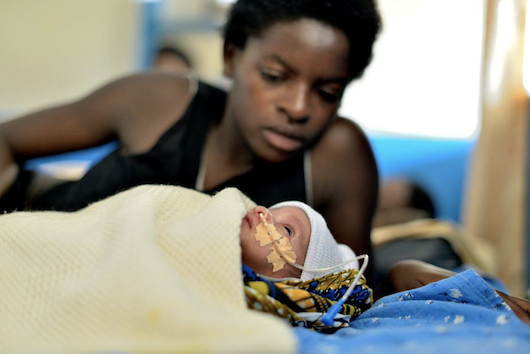One of the most daunting challenges in low-resource healthcare is the gathering of reliable data with which to guide interventions. Now comes new data from Queen Elizabeth Central Hospital, a former INMED Training Site, in Malawi, Southern Africa, indicating that the number of newborns dying from sepsis is rapidly accelerating. Sepsis is a bacterial infection of the blood which rapidly spreads throughout the body and, even with the best treatment, is often fatal.
We at INMED frequently use the term diseases of poverty to emphasize the relationship between general living conditions and the risk of particular illnesses. Analysis of life in Malawi vividly illustrates this relationship: Malnutrition among mothers is high, as is the prevalence of HIV and malaria to which infants are especially susceptible. And, few homes – where most births occur – have ready access to water, let alone soap. These are but a handful of the “general living conditions” that put newborns at risk, and threaten the already vulnerable immune status of these infants.
What can be done? From the broadest perspective, undertakings that increase general education and economic development in turn alleviate poverty and many of the risk factors for newborn infections. And in the meantime, interventions by healthcare professionals – both Malawian and internationals – clearly help preserve the lives of these most vulnerable

